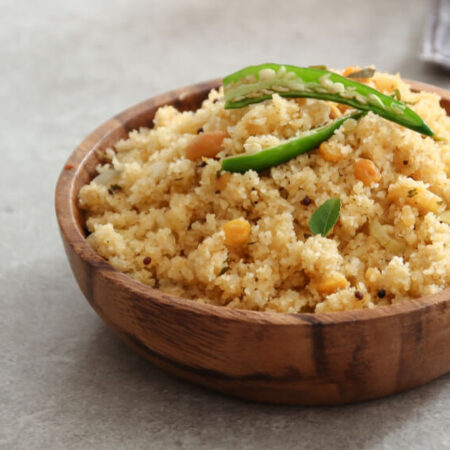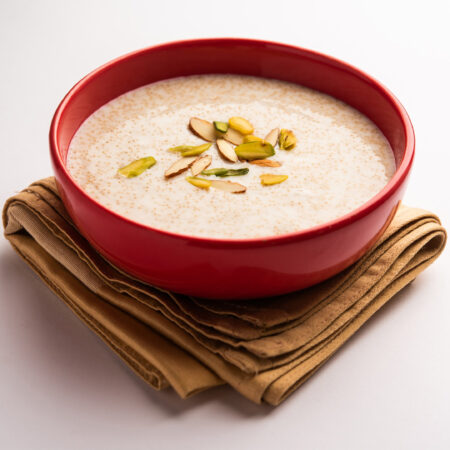
In recent years, there has been a significant resurgence of interest in ancient grains and pseudo-cereals owing to their impressive nutritional profiles and potential health benefits. Among these, sprouted millets have been gaining attention as a nutritious and versatile addition to the modern diet. While millets have been a staple in traditional diets across various cultures for centuries, the process of sprouting them elevates their nutritional value even further. Let’s delve into why sprouted millets are indeed a health-conscious choice worth considering.
What Are Sprouted Millets?
Millets are a group of small-seeded grasses that have been cultivated for thousands of years and are widely consumed in Asia and Africa. They come in various types such as pearl millet, finger millet, foxtail millet, and sorghum, each offering its unique set of nutrients and health benefits. Sprouted millets are simply millet grains that have been soaked in water and allowed to germinate or sprout. This process activates enzymes within the grain, breaking down anti-nutrients like phytic acid and increasing the availability of nutrients. The sprouting process typically involves soaking the millet seeds in water for a period, draining them, and then allowing them to germinate for a specified time, usually around 24-48 hours, depending on the type of millet.
In recent years, there has been a significant resurgence of interest in ancient grains and pseudo-cereals owing to their impressive nutritional profiles and potential health benefits. Among these, sprouted millets have been gaining attention as a nutritious and versatile addition to the modern diet. While millets have been a staple in traditional diets across various cultures for centuries, the process of sprouting them elevates their nutritional value even further. Let’s delve into why sprouted millets are indeed a health-conscious choice worth considering.
Nutritional Benefits of Sprouted Millets:
Enhanced Nutrient Absorption:
Sprouting millets increases the availability of nutrients by breaking down complex compounds that can inhibit their absorption. This includes phytic acid, which can bind to minerals like iron, zinc, and calcium, reducing their bioavailability. By neutralizing phytic acid through sprouting, the body can better absorb these essential minerals, supporting overall health.
Increased Enzyme Activity:
During sprouting, enzymes within the millet grains become more active. These enzymes aid in digestion, making the nutrients in millets more accessible to the body. Additionally, sprouting can increase the levels of beneficial enzymes such as amylase, which helps break down carbohydrates, and protease, which aids in protein digestion.
Rich Source of Nutrients:
Sprouted millets are packed with essential nutrients, including vitamins, minerals, and antioxidants. They are particularly rich in B vitamins such as niacin, thiamine, and riboflavin, which are crucial for energy metabolism and nerve function. Millets also provide a good source of minerals like magnesium, phosphorus, and iron, which are vital for bone health, muscle function, and oxygen transport in the body.
Improved Digestibility:
The sprouting process partially predigests the starches and proteins in millets, making them easier to digest compared to non-sprouted grains. This can be especially beneficial for individuals with digestive issues or sensitivities to gluten, as millets are naturally gluten-free and less likely to cause digestive discomfort.
Incorporating Sprouted Millets into Your Diet:
Sprouted millets can be incorporated into a variety of dishes, offering a nutritious alternative to other grains like rice, wheat, or oats. They can be cooked and used in salads, soups, stews, stir-fries, or even ground into flour for baking bread, muffins, and pancakes. To sprout millets at home, simply soak the grains in water for several hours or overnight, then drain and rinse them thoroughly. Place the soaked millets in a sprouting jar or tray and allow them to germinate for 1-2 days, rinsing them periodically to keep them moist. Once sprouted, they can be stored in the refrigerator for several days or cooked immediately.
Conclusion:
In conclusion, sprouted millets offer a myriad of health benefits, thanks to their enhanced nutrient profile and improved digestibility. Whether you’re looking to boost your intake of essential vitamins and minerals, support digestive health, or explore new culinary possibilities, incorporating sprouted millets into your diet can be a simple yet effective way to nourish your body and delight your taste buds. So why not give these tiny nutritional powerhouses a try and reap the health rewards they have to offer? Your body will thank you for it!







